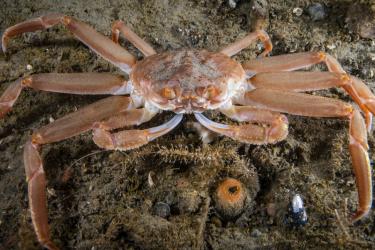Following release of the NOAA Fisheries Climate Science Strategy, today the agency announced $5 million in new research funding to study the impacts of climate change on fish and fisheries of the Northeast Shelf Large Marine Ecosystem. The funds, which will be distributed over the next two-three years, will support seven new projects designed to increase our understanding of how climate change can affect fish stocks, fisheries, and the communities that depend on them for their livelihood.
“Warmer coastal and ocean waters and ocean acidification are already affecting our nation’s fisheries,” said NOAA Fisheries chief science advisor Richard Merrick, Ph.D. “NOAA is working to ensure the resilience of healthy, productive fisheries that are essential to U.S. coastal communities. Sustainable fisheries create jobs, stabilize coastal economies, enhance commerce, and help to meet the growing demand for seafood.”
NOAA Research’s Climate Program Office and NOAA Fisheries Office of Science and Technology funded the projects through a competitive process and include collaborations between NOAA and academic scientists. In addition, these projects support the Administration’s Priority Agenda for Enhancing the Climate Resiliency of America’s Natural Resources.
Six projects support research in the Northeast Shelf Large Marine Ecosystem, a highly productive ecosystem and a source for valuable fisheries like groundfish and scallop. The seventh project will fund a workshop focused on identifying ecosystem thresholds in response to climate change, and associated management strategies, in the North Pacific.
Outcomes of these research projects will provide fisheries managers, fisheries industries, and fishing-dependent communities with better information needed to prepare for and respond to climate-related impacts on key fish stocks in the project areas.


